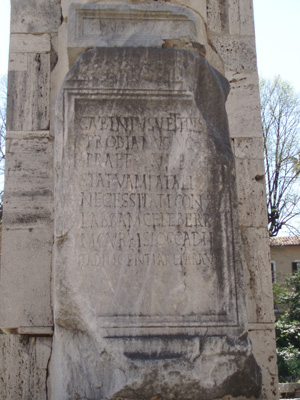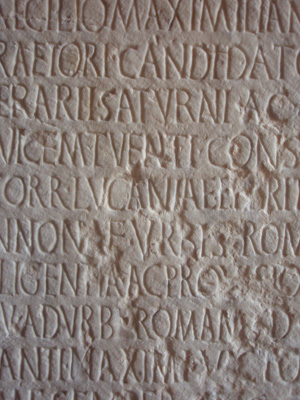Workshop
 |  |
The Epigraphic Culture(s) of Late Antiquity
|
Recent decades have been marked by a profound re-evaluation of the history and archaeology of Late Antiquity. Archaeological excavations, the reinterpretation of texts, as well as a more vigorous engagement with theoretical and methodological debates, have greatly improved our knowledge of different aspects of the late antique world. These developments have led to important attempts at synthesis, proposing new interpretative models and frameworks, and contributing to a renewed debate about the very nature and specificity of the late antique world. Our knowledge of late antique epigraphy has also experienced important advances, from the enthusiastic adoption of new technologies to the incorporation of new questions and research agendas. Although these developments have made a significant contribution to the scholarly understanding of the period, there is still a need for a comprehensive assessment of their impact on our understanding of late antique epigraphy in itself, as a specific field of enquiry. The aim of this workshop is to
discuss, from an interdisciplinary perspective, the epigraphic
culture(s) in Late Antiquity, considering the physical, historical, and
cultural context of late antique inscriptions. The editing and
publication of inscriptions is often concerned with one single monument
or text, sometimes with a small group, and the issues raised by these
documents do not usually lead to a broader perspective. This workshop
seeks to address the need for such a wider approach, from the point of
view of epigraphists, historians, and archaeologists. Among the
questions that will be considered in this conference are: the evolution
of the epigraphic habit, from the crisis of the 3rd c to the Arab
conquest; the impact of religious transformations on the practice and
culture of inscribing; and the social, political, and monumental
context of inscriptions. The emphasis will be on the exploration of the
late antique epigraphic culture, as distinctive from its early imperial
counterpart, but will also focus on the diversity (regional, social,
and religious) that characterizes late antique epigraphy. |


